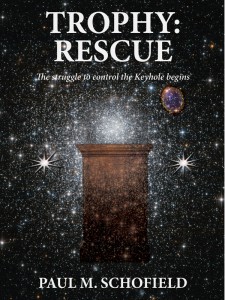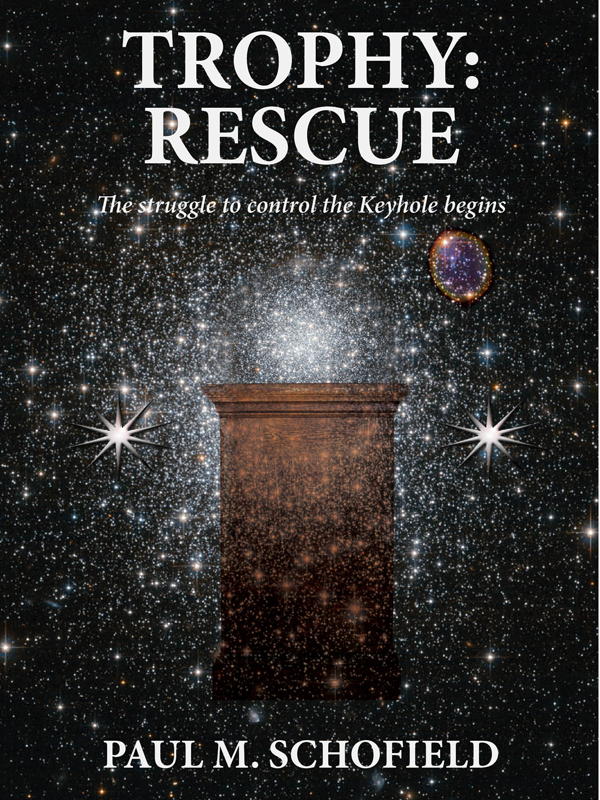Today we have a sneak peek from the second book author Paul Schofield’s science fiction Trophy series: Rescue.
 Imagine an Earth restored to perfection under the care of ten women Guardians, who answer only to a governing computer. Imagine a peaceful, colonized Solar System. This is what the New Victorian Empire has accomplished in the 476 years of its existence. Now mankind faces extinction because of a genetic mutation caused by the catastrophic collapse of Earth’s environment in 2065 A.D., the year the Empire began. The Keyhole anomaly, a wormhole in space, offers a solution; time travel to transport genetically sound humans from the past. A powerful underground organization is rapidly building their forces to eliminate the Empire and gain control of the Keyhole and the Solar System. Only the Planetary Control Corps (PCC) under the leadership of Star-Commander Abigail VanDevere and the dynamic team of Lieutenant Janet Rogerton, Pilot Kolanna, Martin, and Panther stand in the rebels’ way. Will the strength and determination of the PCC be enough? Will they have time to succeed?
Imagine an Earth restored to perfection under the care of ten women Guardians, who answer only to a governing computer. Imagine a peaceful, colonized Solar System. This is what the New Victorian Empire has accomplished in the 476 years of its existence. Now mankind faces extinction because of a genetic mutation caused by the catastrophic collapse of Earth’s environment in 2065 A.D., the year the Empire began. The Keyhole anomaly, a wormhole in space, offers a solution; time travel to transport genetically sound humans from the past. A powerful underground organization is rapidly building their forces to eliminate the Empire and gain control of the Keyhole and the Solar System. Only the Planetary Control Corps (PCC) under the leadership of Star-Commander Abigail VanDevere and the dynamic team of Lieutenant Janet Rogerton, Pilot Kolanna, Martin, and Panther stand in the rebels’ way. Will the strength and determination of the PCC be enough? Will they have time to succeed?
Trophy: Rescue is available from Amazon.com and Barnes & Noble. Continue reading “Sneak Peek: Trophy: Rescue by Paul Schofield”






